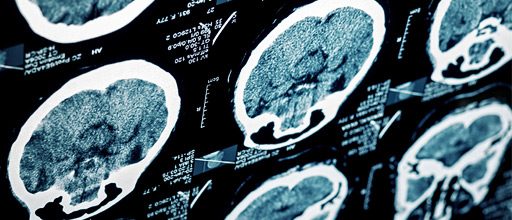
Stress and stroke
Stroke occurs abruptly and often with devastating consequences. In a new study, The George Institute Director, Professor Craig Anderson, and his colleagues found that an uncommon but particularly devastating form of stroke affecting younger people has no links to stress – contrary to common perception.
Many people assume that stress is linked to stroke, what did you find?
Stroke occurs quickly with significant impact and people look for answers to why this is. Stress has been linked to blood pressure and headaches, and many assume that this may be relevant to stroke.
We focused on a less common type of stroke, called subarachnoid haemorrhagecaused by a rupture of a cerebral aneurysm – like a blister in the brain. This type of stroke affects younger people out of the blue, who are in the prime of their life, and are otherwise well. Our research showed that stress didn’t have a major role to play in this form of stroke.
How did you investigate this?
Our study collected information on adverse life events in patients who had a subarachnoid haemorrhage. Our study interviewed a sample of 432 patients from the whole of community. We looked at stressful life events in the twelve months prior to their stroke. Patients were asked if they were a victim of abuse, had experienced an injury or serious illness, had recently moved, experienced work stress, financial difficulties or death of family member or a friend.We are all under varying degrees of stress in our lives, but we looked objectively at what people would consider serious and stressful life events.
What causes this type of stroke?
The two definite causes of subarachnoid haemorrhageare smoking and high blood pressure, but there is likely to be some genetic factors. The more common type of stroke which is usually age related is caused by high cholesterol and hardening of the arteries and obviously heart disease itself.
How can stroke be prevented?
For individuals at high risk, whether due to their age or having heart disease or diabetes, it’s important to check blood pressure regularly and keep it under control with medication if required. Obviously avoiding cigarette smoking and leading a healthy lifestyle is key.
How can health systems effectively deal with stroke?
You’ve got to have a comprehensive health system to work effectively across all of the various facets. Stroke is a preventable illness; therefore we need to have systems that effectively lower the risk of stroke in the community such as good management of risk factors and effective education so that patients can detect signs of a stroke quickly. From a health system perspective, fast ambulances and effective acute management in stroke care units are essential, as we have a small window of opportunity to lessen the impact on the brain. Links into rehabilitation systems so that patients can return home or to work along with support and education for families is also important.


